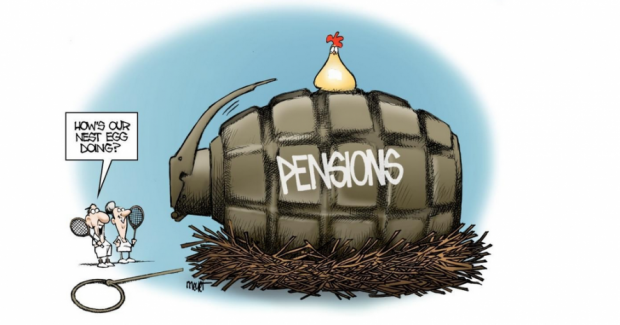
Breaking News
John Sneisen - Outernet and Canadian Economy
 "You Will be Programmed and Enslaved Through AI" - Iain Davis
"You Will be Programmed and Enslaved Through AI" - Iain Davis
 $80 SILVER IN CHINA RIGHT NOW - The Premium Explosion Means Squeeze Incoming
$80 SILVER IN CHINA RIGHT NOW - The Premium Explosion Means Squeeze Incoming
 Do you want to really know what the banks are doing about their silver situation?
Do you want to really know what the banks are doing about their silver situation?
Top Tech News
 EngineAI T800: Born to Disrupt! #EngineAI #robotics #newtechnology #newproduct
EngineAI T800: Born to Disrupt! #EngineAI #robotics #newtechnology #newproduct
 This Silicon Anode Breakthrough Could Mark A Turning Point For EV Batteries [Update]
This Silicon Anode Breakthrough Could Mark A Turning Point For EV Batteries [Update]
 Travel gadget promises to dry and iron your clothes – totally hands-free
Travel gadget promises to dry and iron your clothes – totally hands-free
 Perfect Aircrete, Kitchen Ingredients.
Perfect Aircrete, Kitchen Ingredients.
 Futuristic pixel-raising display lets you feel what's onscreen
Futuristic pixel-raising display lets you feel what's onscreen
 Cutting-Edge Facility Generates Pure Water and Hydrogen Fuel from Seawater for Mere Pennies
Cutting-Edge Facility Generates Pure Water and Hydrogen Fuel from Seawater for Mere Pennies
 This tiny dev board is packed with features for ambitious makers
This tiny dev board is packed with features for ambitious makers
 Scientists Discover Gel to Regrow Tooth Enamel
Scientists Discover Gel to Regrow Tooth Enamel
 Vitamin C and Dandelion Root Killing Cancer Cells -- as Former CDC Director Calls for COVID-19...
Vitamin C and Dandelion Root Killing Cancer Cells -- as Former CDC Director Calls for COVID-19...
 Galactic Brain: US firm plans space-based data centers, power grid to challenge China
Galactic Brain: US firm plans space-based data centers, power grid to challenge China
California Supreme Court Set For Ruling That Could Cut Pensions For Public Workers

On the other hand, that 'universal rule' also necessarily stipulates that taxpayers can be absolutely steamrolled by whatever tax hikes are necessary to fulfill the bloated pension benefits that unions promise themselves.
Alas, that one 'universal rule' may finally be at risk as the California Supreme Court is currently considering a case which could determine whether taxpayers have an unlimited obligation to simply fork over whatever pension benefits are demanded of them or whether there is some "reasonableness" test that must be applied. Here's more from VC Star:
At issue is the "California Rule," which dates to court rulings beginning in 1947. It says workers enter a contract with their employer on their first day of work, entitling them to retirement benefits that can never be diminished unless replaced with similar benefits.
It's widely accepted that retirement benefits linked to work already performed cannot be touched. But the California Rule is controversial because it prohibits even prospective changes for work the employee has not yet done.



